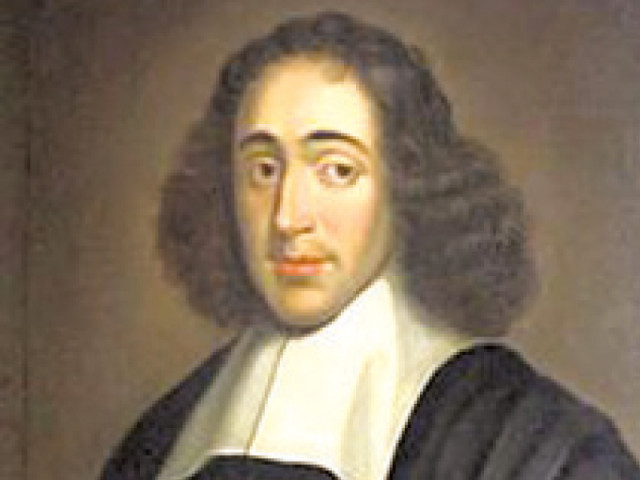Confronting conventions: A challenging session on Spinoza’s ideals
The School of Modern History and Philosophy is holding a series of lectures till October.

16th-century philosopher Baruch Spinoza. PHOTO: FILE
In stark contrast to the displays of religiosity during Ramazan, philosophy enthusiasts in Islamabad got together on Saturday to keep the flame of intellectual discussion burning.
Around two dozen people attended the sixth session of the School of Modern History and Philosophy — an informal fortnightly gathering of people from all walks of life, conducted by the veteran intellectual and writer Ashfaq Saleem Mirza at the Friedrich-Ebert-Stiftung office in the capital.
Offsetting the religious mood, it was only apt then that their topic of discussion was the life and work of 16th century philosopher Baruch Spinoza, most famous for his treatise Tractatus Theologica-Politicus — a book that among other things carried Spinoza’s critique of organised religion.
In a brief background, Mirza informed that Spinoza was born in 1632 in to the Sephardic Jewish community of Amsterdam, Netherlands. Even though Spinoza’s native language was Portuguese, he learnt Hebrew, Dutch and Latin.
But Spinoza’s dissenting ideas did not sit well with the Jewish community which excommunicated him in 1656. However, this incident only allowed the philosopher to focus on his work, Mirza said.
He said Spinoza was an isolated man, much like the German philosophers Immanuel Kant and Arthur Schopenhauer, and there is also an element of concealment in his writings.
The major reasons for Spinoza’s excommunication could be guessed from his writings — the Tractatus, which was published anonymously because of its controversial content, and a book titled “Ethics” in which Spinoza detailed his views on religion, the mind, emotions and human liberty.
Mirza quoted from Jonathan Israel’s book “Radical Enlightenment: Philosophy and Making of Modernity” that Spinoza replaced theology with philosophy and showed that knowledge is democratic, arguing that no one can have a monopoly over knowledge.
Spinoza refuted the mind-body dualism of French philosopher Rene Descartes and maintained that mind and body are not separate entities. Instead, Spinoza said, there is only one substance on which all physical and psychological processes work. This substance is self-caused, can exist in itself or independently of anything else.
Mirza said Spinoza’s influence can be understood from the statement of famous German philosopher Hegel who wrote that “either you are a Spinoza-ist or not a philosopher at all.”
Interspersed with talk of current affairs, the discussion also digressed to the ideas of other historical figures such as Freud and Machiavelli before returning briefly to the dialectic method practiced by Greek philosopher Socrates, who liked to question the conventional beliefs of his time.
“Let’s challenge all the fallacies,” Mirza said, echoing Socrates, as he concluded Saturday’s lecture. “We must demolish all the fallacies.”
The school’s lectures are planned to run until October, with the next session taking place on Saturday, July 27.
Published in The Express Tribune, July 14th, 2013.



















COMMENTS
Comments are moderated and generally will be posted if they are on-topic and not abusive.
For more information, please see our Comments FAQ